The June sun beats down on Rocky Mountain National Park, and 22 year-old Aileen Palma sits on the edge of Sprague Lake, trembling. Her fellow hikers spot the signs of hypothermia and gather around her. Cristal Cisneros, another member of the group, tends to Palma while their leader Chela Garcia Irlando, 25, coaches her through the treatment protocol. “When you’re still shivering, it’s not extreme hypothermia yet,” Garcia Irlando says, creating a leaning spot with her legs for Palma. “What else could you give her to start warming up?”
It’s the women’s first first-aid lesson of the day. Garcia Irlando, the Colorado Regional Coordinator for Latino Outdoors, will stop to let each of her volunteers diagnose and treat a simulated illness or injury as they hike their way around the still lake, settled in a basin surrounded by snow-flecked mountains.
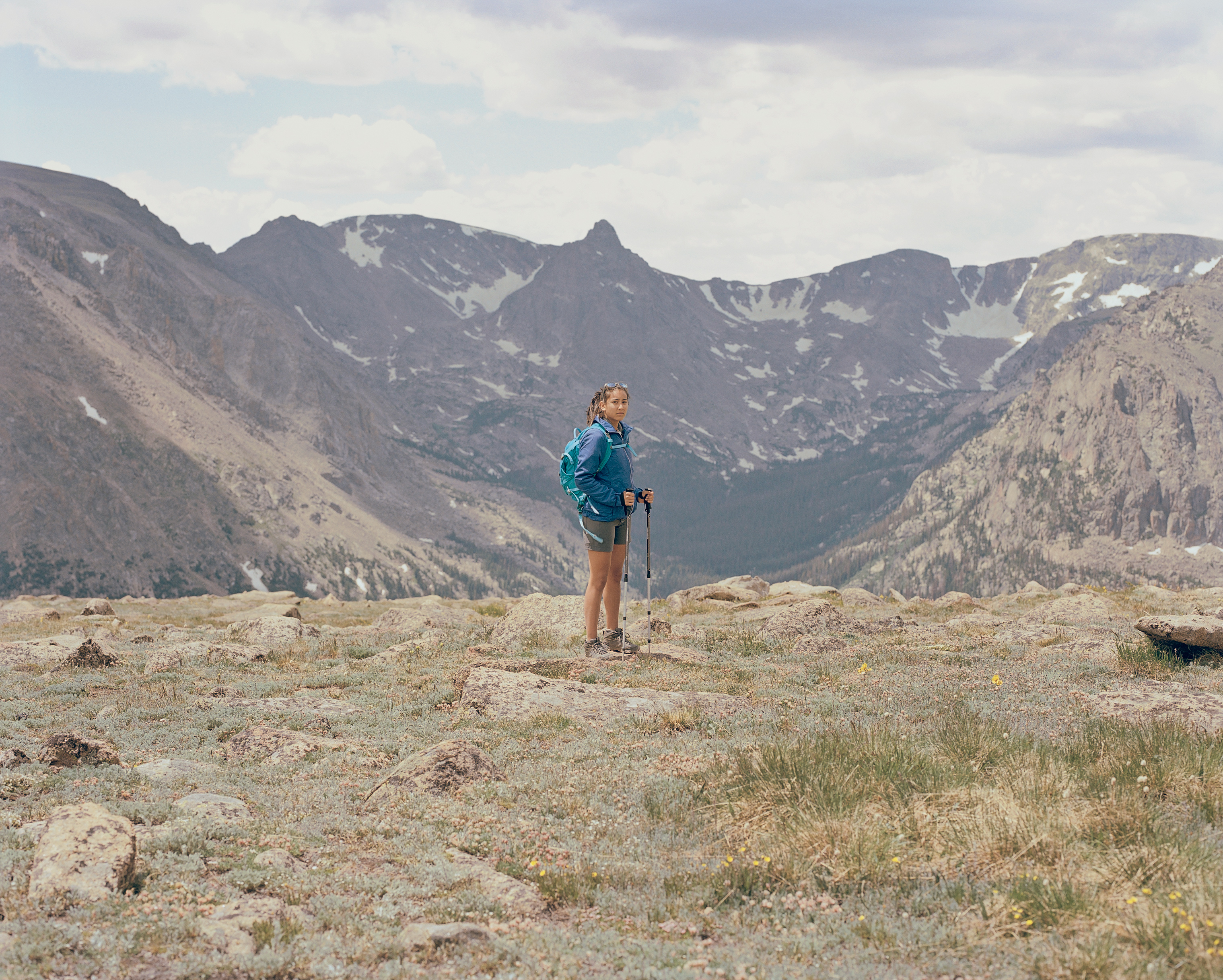
Latino Outdoors, a national organization that seeks to encourage members of Latino communities to engage with nature, has been around since 2013. Garcia Irlando has led the Colorado chapter for two and a half years, building this volunteer corps into a group of 11 Latinas with diverse family histories. Some are first-generation Americans with parents who emigrated from Mexico and El Salvador. Others are immigrants themselves. As women — and as women of color — they defy the typical image of rugged outdoorspeople, Garcia Irlando says. She describes being underestimated in her wilderness first responder course and questioned when she talks about having twice climbed Mexico’s El Pico de Orizaba, an 18,500-foot mountain. “It was people of the Americas that protected and cultivated and took care of these lands,” Garcia Irlando says. “I find it very important that people who look like me, talk like me and share my identity are the ones building each other up.”
Once a month, the team meets to plan the outings they’ll facilitate for the local Latino community, whether hiking, canoeing, snowshoeing, rock climbing or rafting. Just as often, the women gather for an excursion all their own, to further their training and deepen their bonds. “When we go outside together, when we’re pushing each other up a trail, or learning how to cook on a campfire, or learning how to rock climb or ice climb, there’s this sense of relief and acceptance that you don’t get anywhere else,” Garcia Irlando says.
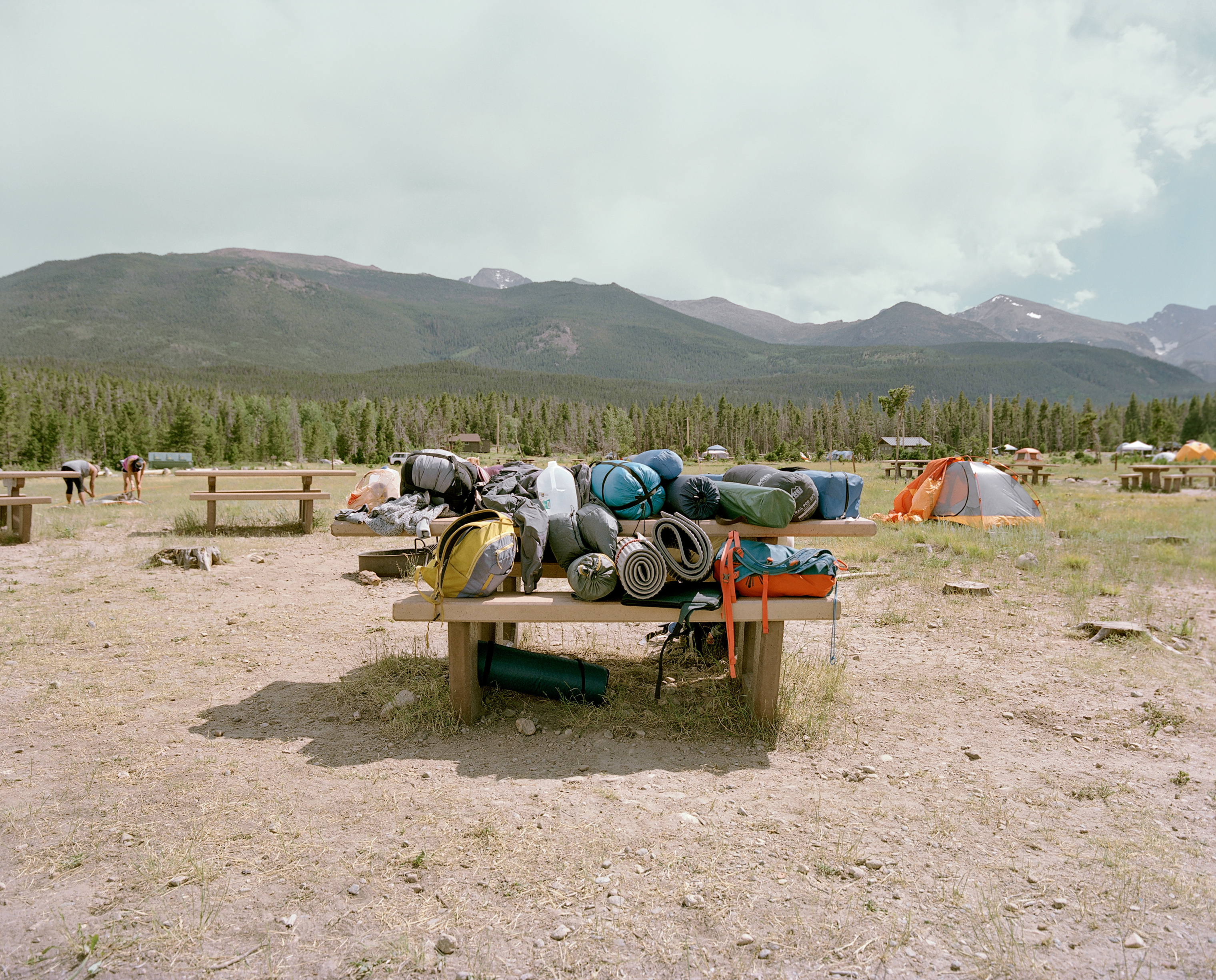
In the outdoors — and among their fellow volunteers — the women can be themselves completely. There is no impatience for a hiker who needs to stop and rest, no judgment when a climber asks a question, and no pause in the conversation when a camper momentarily switches to her native language. They can laugh at what their mothers would say if only they could see the girls scaling rocks for fun. They can leave the pressures of their day jobs behind, say out loud the ambitious adventures they secretly dream of taking — and lend each other the necessary gear to get out and chase them. “In 2018, we see a lot of women stepping up,” Garcia Irlando says. “It’s awesome to bring that into an industry where not only are we held to a different standard because we’re women, but we’re held to a different standard because we’re Latina.”
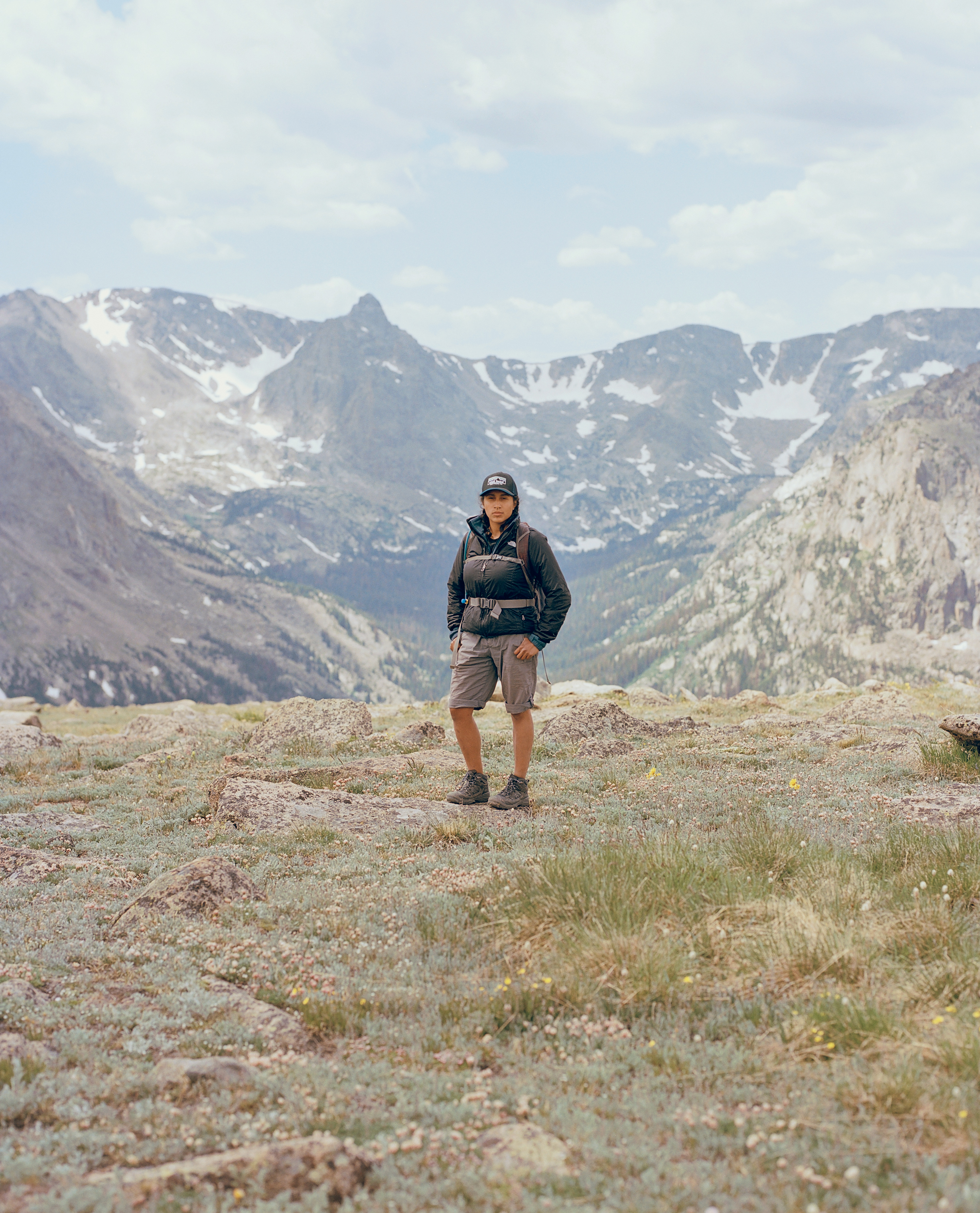
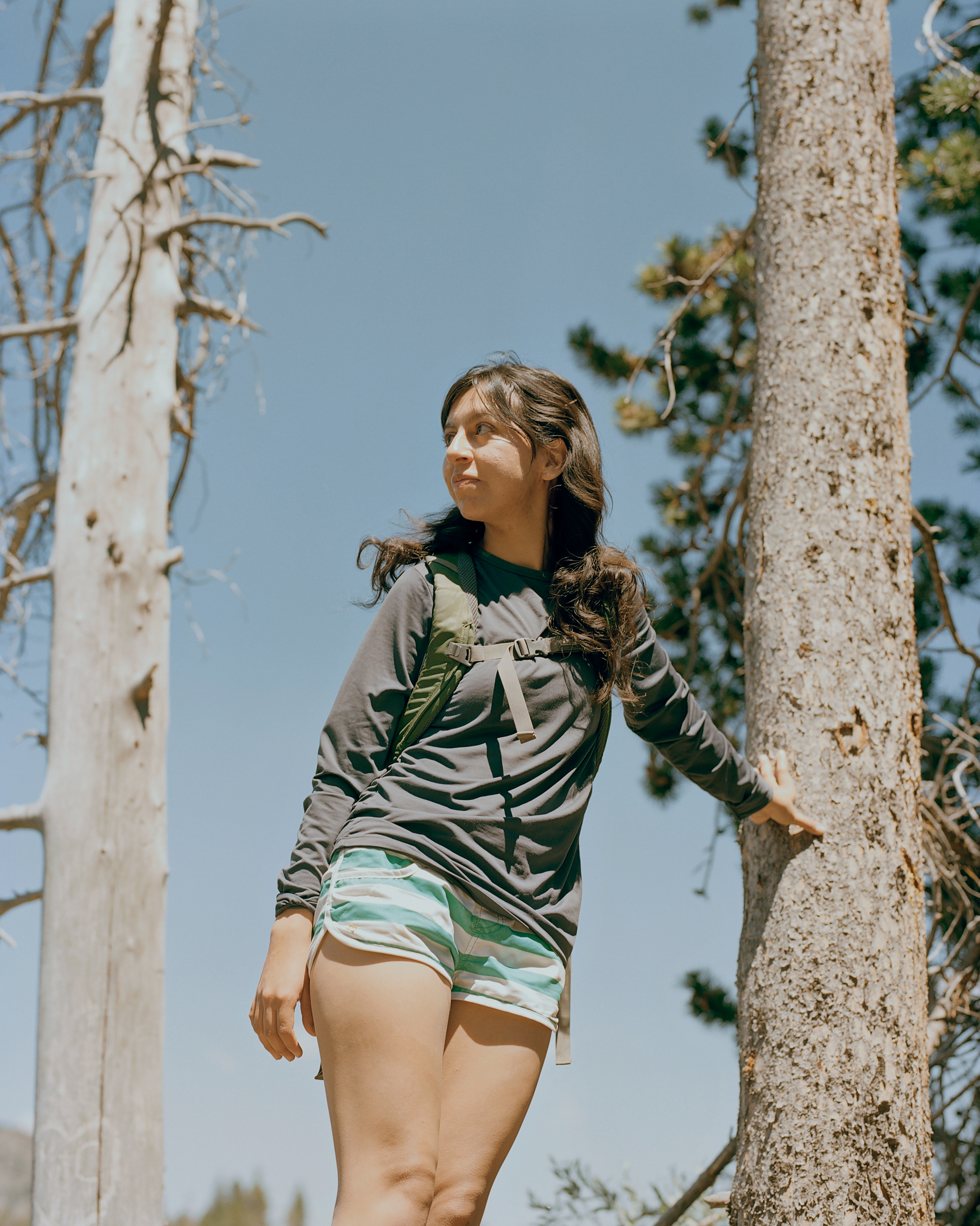
To start the day, the group meets at 7 a.m. in Wheat Ridge, at the house of Cisneros, 29, an Urban and Diverse Communities doctoral candidate. After checking their gear and running through the trip agenda, they pile into cars to caravan roughly two hours up to the mountains. Bianca Garcia, 24, and Natalia Ospina, 26, hop in with Cisneros. Winding along highways carrying them out of the city, Ospina balances Cisneros’s laptop on her knees, transcribing the driver’s ideas on harmful Latina stereotypes for her “Power and Privilege” graduate school class.
Conversation about the pressures they felt as girls to look a certain way and the icons they held up as ideal (Jennifer Lopez, Salma Hayek, Eva Longoria) soon shifts to how the friendships they’ve built through Latino Outdoors have opened their eyes to everything from the joys of being single to shared experiences across Latino cultures.
Ospina describes arriving with her family in the U.S. from Colombia when she was four years old, in 1996. She grew up undocumented, and became a naturalized citizen when she was 20. “I felt like I had this huge secret,” she says.
“We look out for one another,” says Yesica Chavez, one of the youngest volunteers at age 20, “and we talk about things that we wouldn’t talk about with other people.”
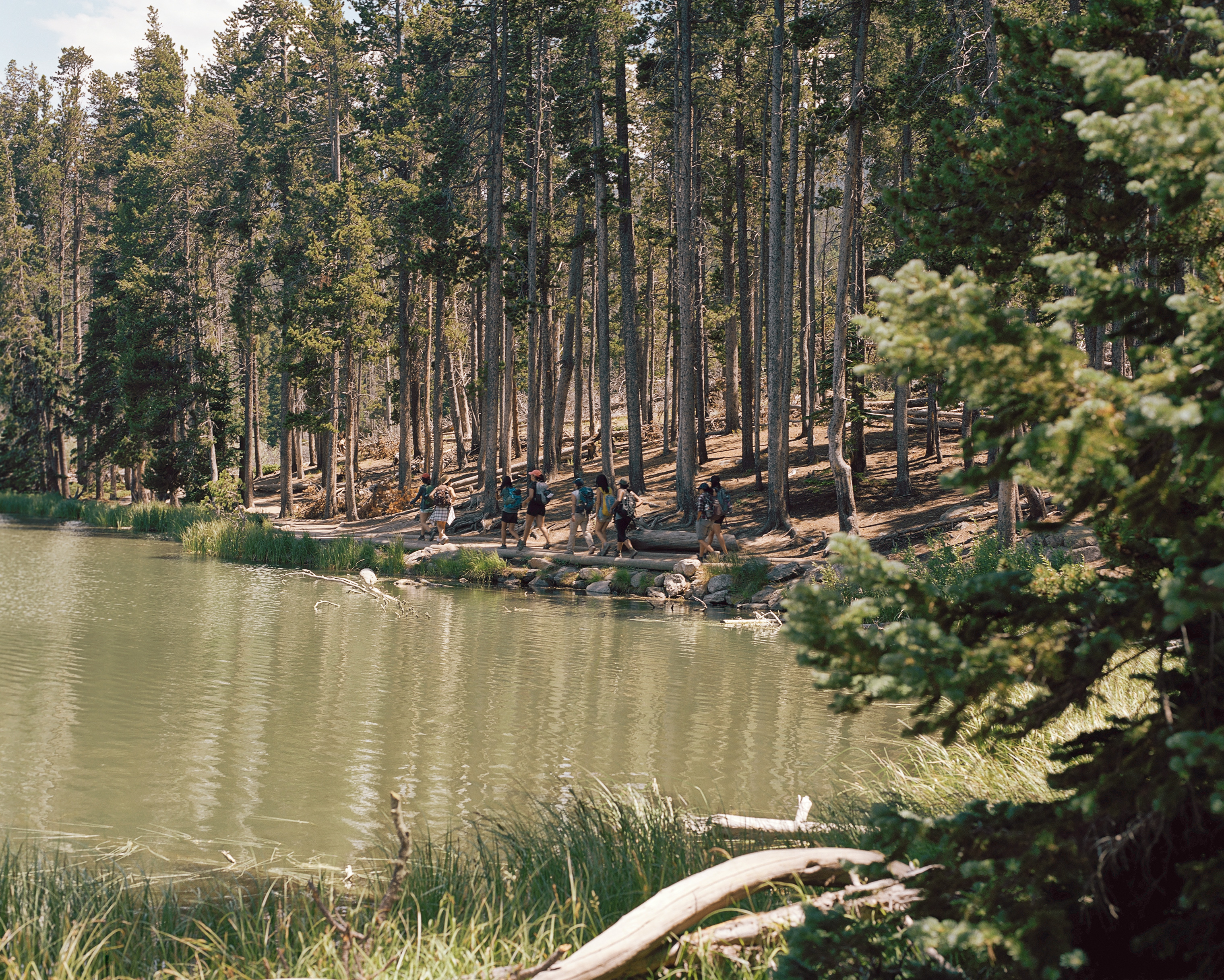
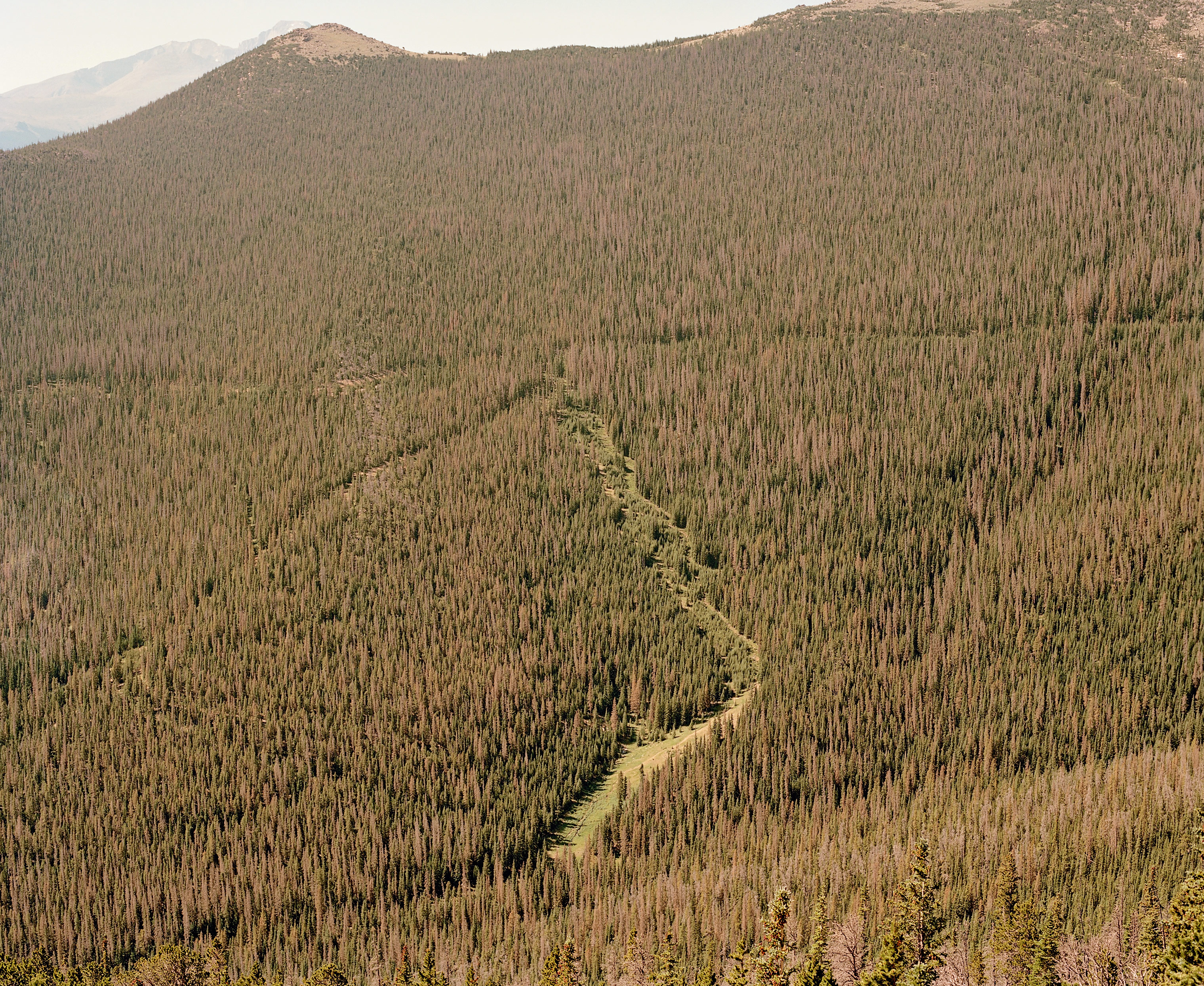
Later, at the Glacier Basin Campground, situated at about 8,500 feet, Garcia Irlando assembles a canopy over the site’s picnic table for some much-needed shade, and the women unload their packs, passing around chips and bread and peanut butter and more than a few items that can’t be found at REI. Ospina snacks on fried plantains. Nohemi Mora packs pop tarts. Chavez says she never goes anywhere without hot sauce, and cracks a joke about the group’s obsession with Flamin’ Hot Cheetos. “It’s culture for us,” she says. “We’re not going to stop being who we are because we’re in a different space.”
After packing the food away in bear-proof lock-boxes, Mora, 24, and Jenn Orellana, 22, talk about the fears the outdoors can inspire and how they’ve worked to overcome them. There’s the heavy fear, for some members of the larger Latino community, that comes with engaging with the government employees who post up outside national parks to check permits and offer directions. “If you don’t feel safe leaving your house, you’re definitely not going to come out here,” Mora says, adding that part of the goal of their group is to make sure Latinos of all backgrounds find a welcoming space outdoors.
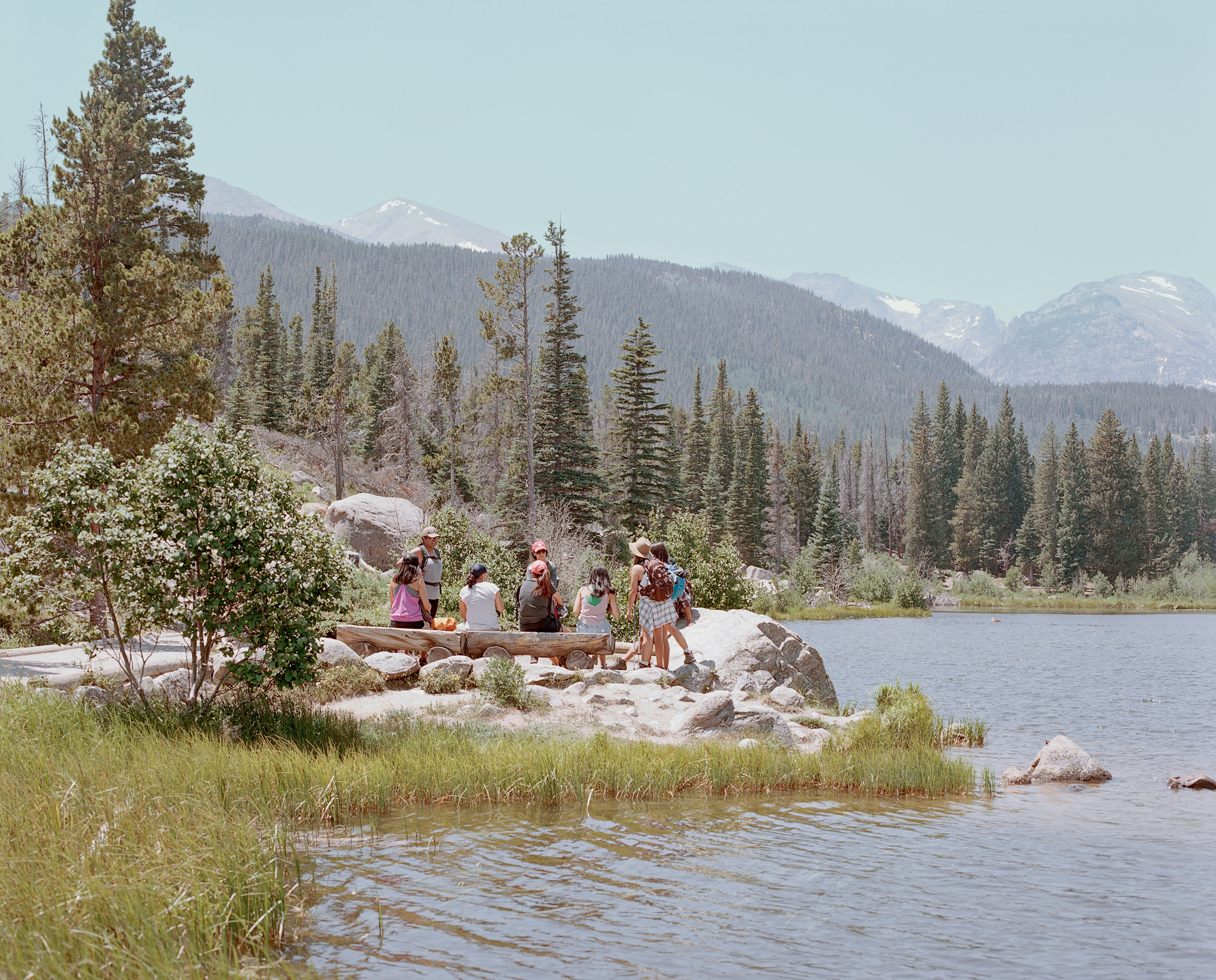
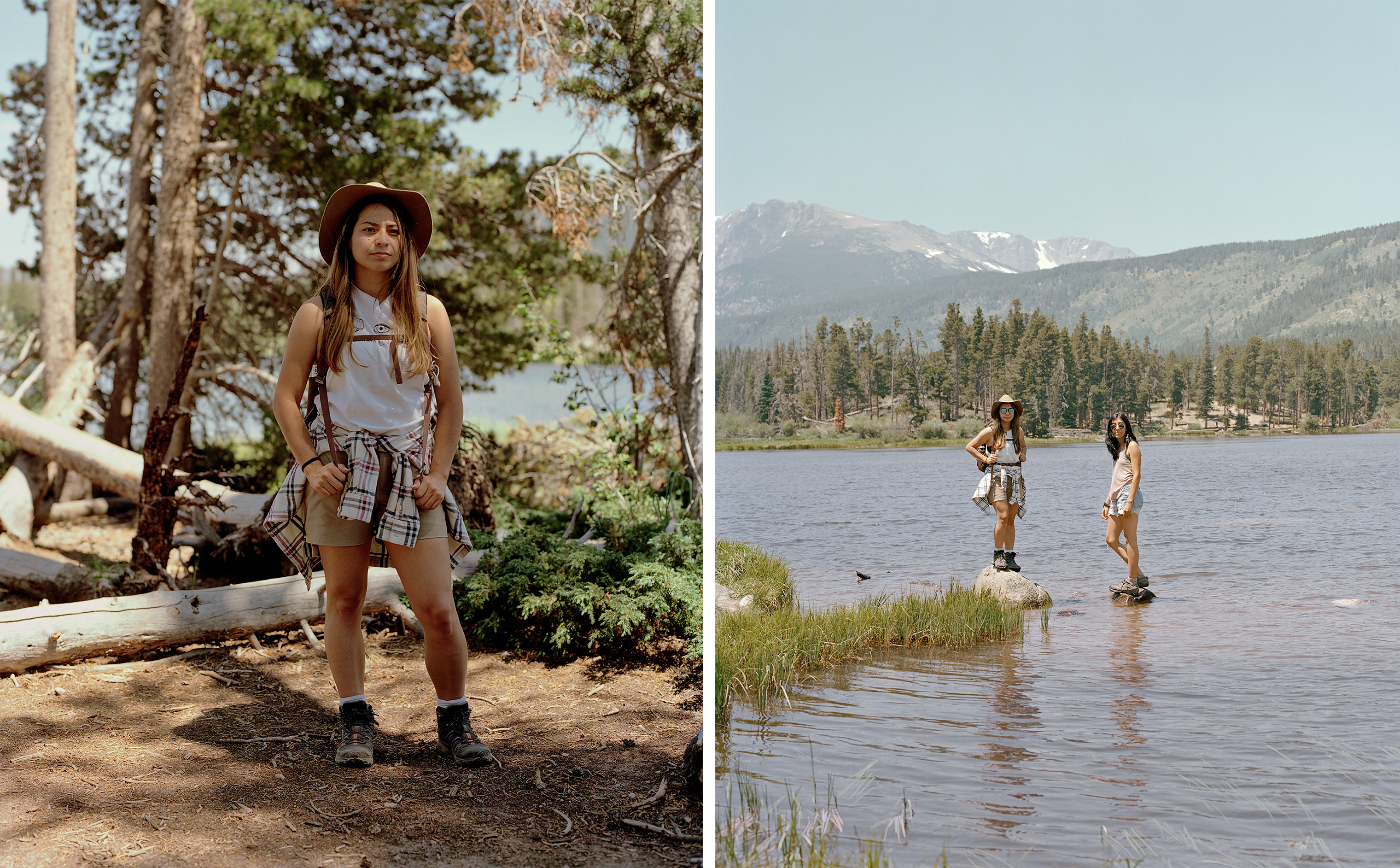
Then there’s the fear of being a woman alone in the wilderness, which they both admit is sometimes a struggle. “This is the first time I’ve camped all summer, because I didn’t feel safe camping by myself,” Orellana says. “But we all came together, and I know we could kick some ass.” The power of the group, Orellana and Mora agree, is in how they take on challenges each member might not attempt alone — but through the confidence and skills they develop together, constantly move toward that independence. Mora points to her bandana, a cheery orange with white scrawling script: Outside is the largest level playing field on earth.
See more stories from this project, Women Across America: A TIME Road Trip.
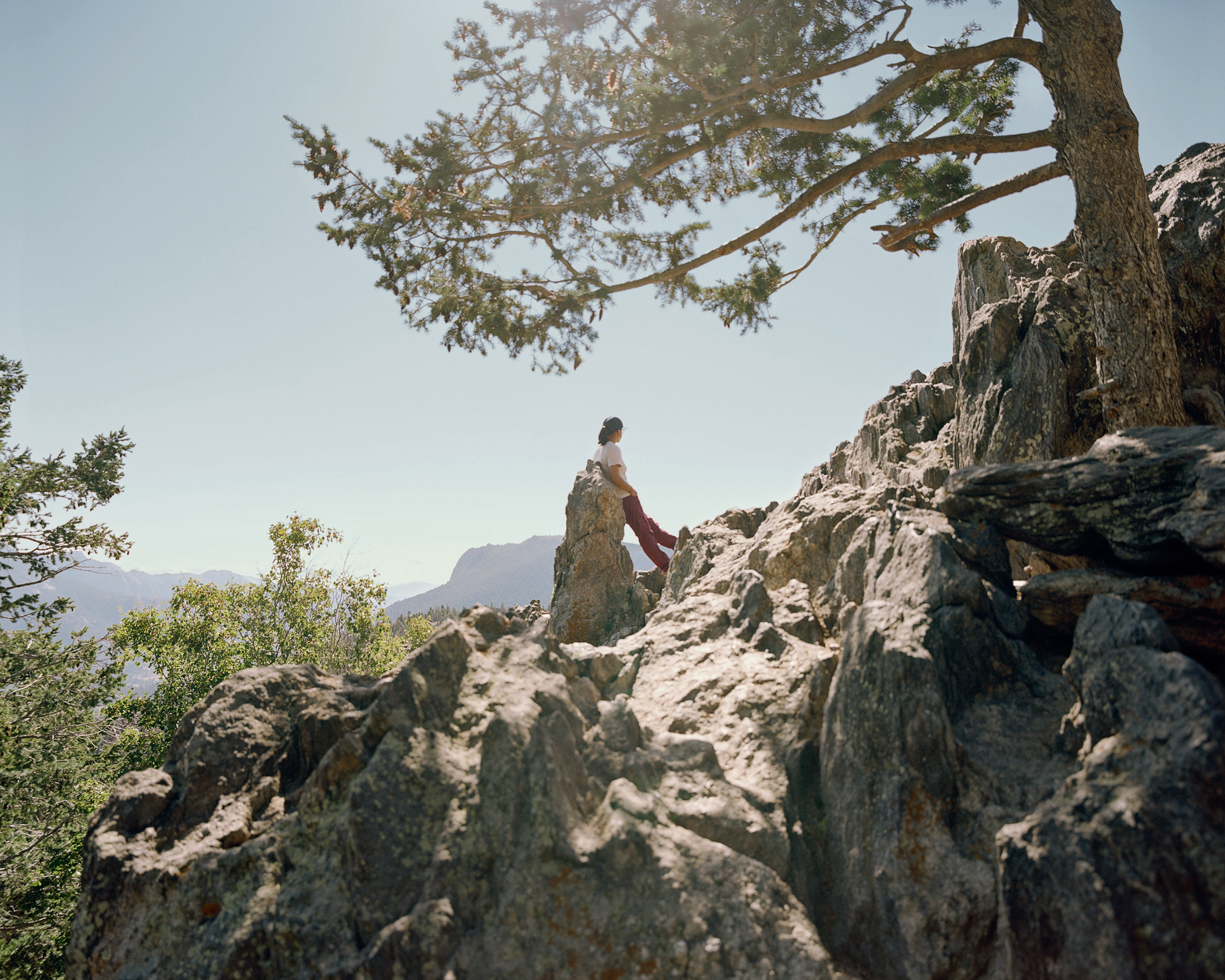
- Why Trump’s Message Worked on Latino Men
- What Trump’s Win Could Mean for Housing
- The 100 Must-Read Books of 2024
- Sleep Doctors Share the 1 Tip That’s Changed Their Lives
- Column: Let’s Bring Back Romance
- What It’s Like to Have Long COVID As a Kid
- FX’s Say Nothing Is the Must-Watch Political Thriller of 2024
- Merle Bombardieri Is Helping People Make the Baby Decision